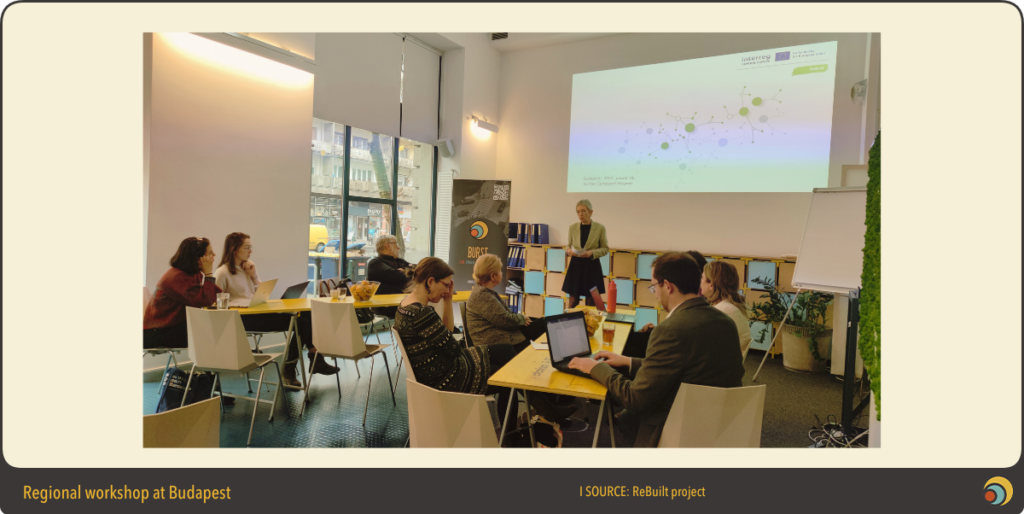This month, we will focus on an Interreg Central Europe we work on, ReBuilt. The construction sector is one of the main contributors to climate change and environmental damage, with its immense use of resources, waste and greenhouse gas emissions. ‘More than 50% of all extracted materials, 50% of water and a thirds of energy is used in construction which also produces more than a third of all waste and a third of greenhouse gases,’ explains BURST project manager, Mihály Kondacs.
Thus, greening the construction sector is a key challenge in achieving the EU’s ambitious Green Deal goals. And ReBuilt sets out to contribute to the solution. Led by the Slovenian National Building and Civil Engineering Institute, ReBuilt is uniting partners from Slovenia, Italy, Hungary, Austria, Slovakia, Czechia, and Poland to overcome that. In the project, digital and circular solutions are explored that will make the industry greener in Central Europe.
But how does BURST fit into this story? ‘BURST’s primer task is to coordinate the mapping of relevant good practices and stakeholders in each participating country, and – after regional workshops and a transnational conference of the topic – summarise the situation of the circular construction industry in CEE for the upcoming, practice-oriented tasks of the project (testing circular and digital solutions),’ Kondacs explains. ‘With our colleagues we map relevant professional initiatives and connect national and international actors (from the municipal, market, academic and civil spheres) who have an important role to play in orienting the region’s construction industry towards circularity.’

One of the key challenges in this project is the wide gap between Central European countries in terms of existing practices, with some countries being significantly further down the line in terms of greening their construction sectors. However, some challenges are common all over Central Europe. For example, the lack of operating secondary raw material-based (#SRM) construction market or the lack of appropriate data about the quality of SRM-based products and their traceability (waste to product flows) is a common challenge. Similarly, administrative and legal routes for reuse of products are missing. Very importantly for this project, good practices of circular economy business models and transnational education programmes for experts also need to be developed.
Working in the Hungarian context, additional challenges were raised for BURST. ‘Since the start of the project, we have found that the biggest challenge is to find common ground between Hungarian policy and legislation, and modern circular architecture – although the direction is set, it will take time for the sector to fully integrate,’ explains Kondacs. However we were able to develop a good working relationship with the Ministry of Construction and Transport. Thus, we can work together towards a greener construction sector in Hungary.
